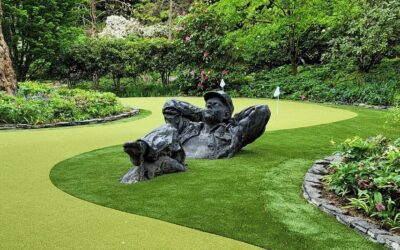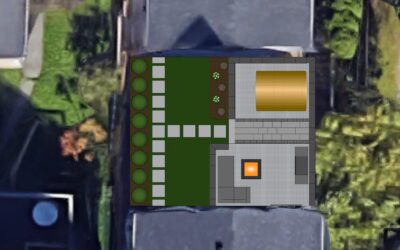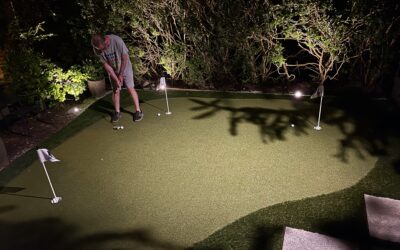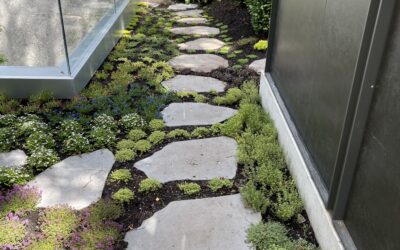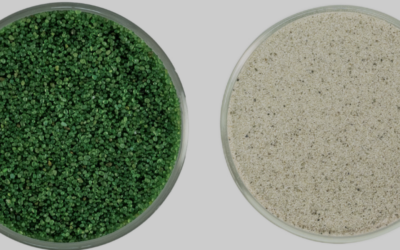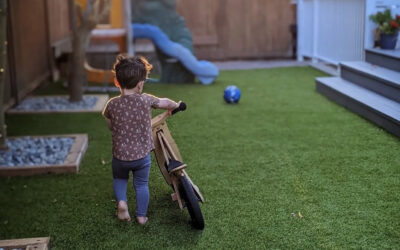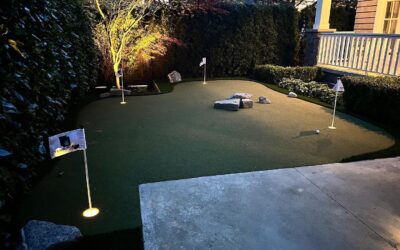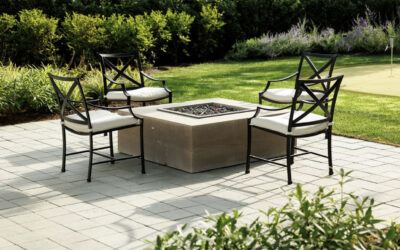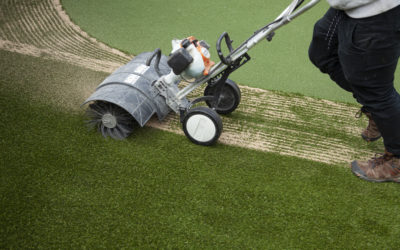Contrary to popular belief, Artificial grass actually offers several environmental benefits over having a real lawn. Here are some of the ways that artificial grass can reduce your carbon footprint and provide numerous benefits for the environment:
1. Reduced Water Usage
One of the main advantages of artificial grass is that it does not require water, whereas natural grass consumes a ton! According to a study, 54% of residential water is used on landscape and lawn maintenance. Water conservation is essential for the planet, and using artificial grass can help reduce water consumption and preserve this valuable resource. (Not to mention it reduces your hydro bill each month!)
2. Reduced Pesticide and Fertilizer Usage
Maintaining natural grass often requires the use of pesticides and fertilizers, which can be harmful to the environment and for our health. With artificial grass, these chemicals are not necessary, reducing the risk of pollution and contamination of the soil and water.
3. Reduced Maintenance = Reduced Pollution
Artificial grass does not require mowing, trimming, or most regular maintenance tasks that natural grass needs. This means that it uses significantly less gasoline for lawn mowers and other equipment. I bet you didn’t know that running a gas-powered lawn mower gives off more greenhouse gas emissions than 40 cars driving for that same hour! Retiring your lawn mower will do the planet a big favor.
4. Longer Lifespan
Artificial grass has a much longer lifespan than natural grass, meaning that it does not need to be replaced as often. This reduces the amount of waste generated by the disposal of old grass, which only needs to happen once with artificial grass.
In conclusion, artificial grass can be a good option for the planet due to its reduced water usage, reduced pesticide and fertilizer usage, reduced maintenance, and longer lifespan. Furthermore, the industry is moving towards more sustainable materials and practices every year. As of 2023 there is nowhere to recycle artificial grass in Vancouver, but in 20+ years by the time your turf is ready to be resurfaced, we expect that there will be a local recycling service! If you have any specific questions about synthetic grass and it’s impact on the environment, please reach out to us here

